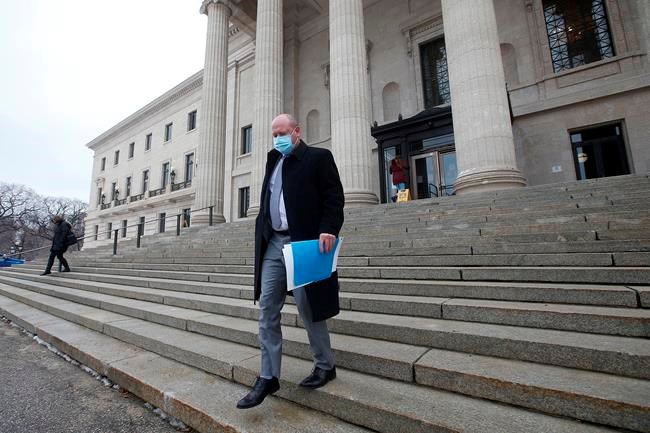Manitoba's top doctor is clarifying a public health order as the province enters a self-imposed economic and social hibernation to try to bring surging COVID-19 numbers back under control.
“The current restriction on the Pandemic Reponse System is critical," Dr. Brent Roussin said in a statement Thursday. "It says stay home. I say stay home."
The province has been struggling to slow the spread of the novel coronavirus since it started spiking in recent weeks after a summer lull.
Roussin, chief public health officer, announced earlier in the week that enhanced restrictions which came into effect Thursday would ban social gatherings.
The public health order, however, was written with a limit of five people on gatherings to accommodate caregivers and others who may have to enter a household.
Roussin said it is still the strictest order yet. During the first lockdown in spring, group sizes were limited to 10 but there were no limits on private gatherings.
"The message everyone needs to hear right now, regardless of the legal orders, is don’t socialize outside your household. Stay home," Roussin said.
The province's response also curtails a lot of other activity.
Churches can't hold in-person services and non-essential stores and restaurants are limited to curbside pickup and delivery.
Bars, museums and theatres are closed and recreational activities suspended, although schools remain open.
The province reported 5,676 active cases on Wednesday, the deadliest day of the pandemic for Manitoba, with nine new deaths for a total of 123.
It's the largest per-capita caseload of active infections in the country.
Tighter public health orders had already been brought in for some areas, notably Winnipeg, but Roussin said earlier this week that the targeted approach was not working.
The sharp rise in cases and, with it, a record number of hospitalizations has put the health-care system under strain. Intensive care beds, including those occupied by non-COVID-patients, are running close to capacity.
There have been outbreaks in long-term care homes and hospitals, and widespread community transmission.
"We need to flatten our COVID curve and we need to do that now," Premier Brian Pallister said Tuesday as he announced the widespread slowdown which is to last as long as four weeks.



